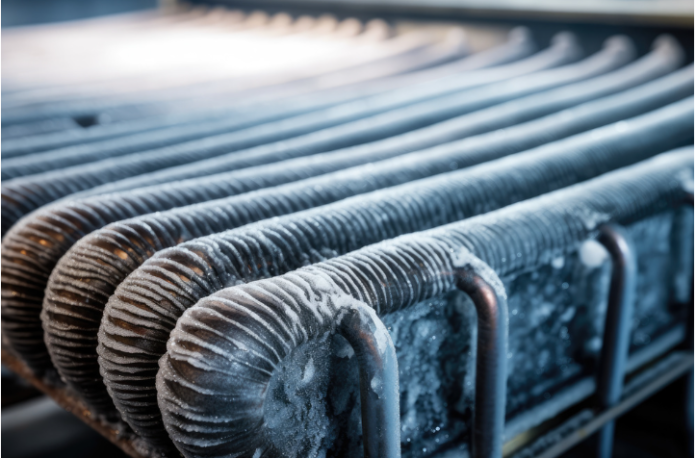A lot of things can cause an HVAC system to stop functioning properly. Take the air conditioning (AC). A pretty common problem with AC is a freezing evaporator coil. Diagnosing it is not as difficult as it might sound, and the repair could actually be minor.
What an Evaporator Coil Does
Utah’s Comfort Solutions explains that an HVAC system’s evaporator is designed to remove heat from interior spaces. As refrigerant flows through the coil, it draws heat from the air and expands. The refrigerant then travels outside where it releases the heat by condensing.
Obviously, an evaporator coil is not supposed to freeze. If it does, it prevents the system from removing heat. Your AC could work all day long without your house ever getting as cool as you want it to be. The question is this: how would you know if AC problems were the results of a freezing evaporator coil?
Easy Signs to Look For
Fortunately, the signs of a freezing evaporator coil are pretty evident. You don’t have to dig too deeply to reach the right conclusion. At the top of the list is an AC system that is blowing warm air instead of cold.
A system blowing warm air is not going through the continuous and dramatic cycle of absorbing interior heat and releasing it outside. The refrigerant within the system is maintaining a pretty constant temperature. Therefore, cold air isn’t being produced.
Other signs include:
- Frost Buildup – A frozen evaporator coil will actually display frost on its exterior surface. You can also look for frost around refrigerant lines and the air handler. Even the copper lines leading to and from an interior air conditioning unit may display frost.
- Water Pooling – Water pooling underneath an AC unit is often the result of a condensate pipe malfunction or an overwhelmed drainage pan. If the evaporator coil is freezing, it will overwhelm the drainage pan whenever it thaws. Water will pool on the floor as a result.
- Poor Airflow – If the inability of your system to cool your home is exacerbated by poor airflow (the blower isn’t circulating air as powerfully as before) there is a good chance that ice is blocking the evaporator coil.
All these signs are supported by a significant thermostat discrepancy. You might have the temperature set to 72°F but your home never gets below 80°, no matter how long the air conditioner runs.
A frozen evaporator coil can produce all or just some of these signs. But if you notice all of them, there is a pretty good chance that your evaporator coil is the root of the problem. The next question is what could be causing it to freeze?
A Couple of Different Things
Comfort Solutions says that a couple of things can cause a freezing evaporator coil. The first is poor air circulation. If the air handler isn’t working properly or vents are clogged, there is not enough air circulating around the evaporator coil to maintain the correct temperature. It could ultimately freeze if the unit runs too long.
The other potential issue is a low refrigerant level. Refrigerant lines should always be full with refrigerant. But refrigerant does leak over time. If the refrigerant level gets too low, the heat transfer process does not work as it should. A freezing evaporator coil would be one of the expected results.
Regardless of the root cause, a freezing evaporator coil is something that a professional should handle. It’s not a job for the DIY homeowner. The good news is that repair probably won’t cost an arm and a leg.

